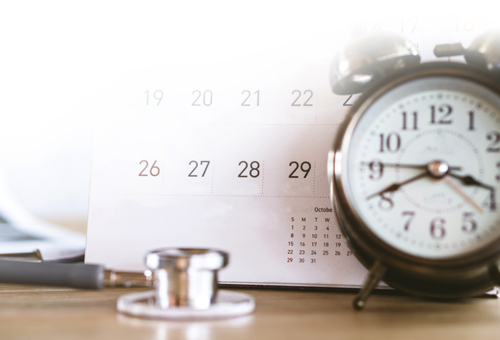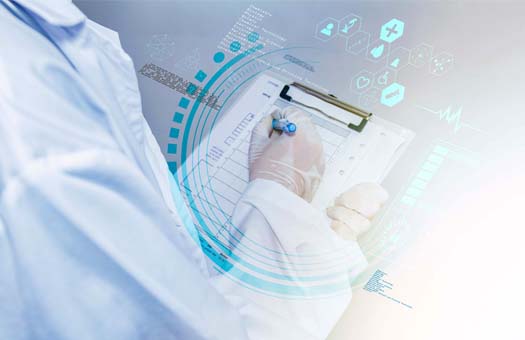Health check-ups can be a nerve wreaking experience and full of anxiety at times. Procedures need to be explained and understand clearly so that prior misconceptions can be avoided. Some patients may wonder why fasting is necessary prior to the blood test. Questions that normally comes to mind are: Can the blood sample be taken immediately upon arrival at the hospital or are there any other options available?
Blood Sugar test
Health check-up may require 3 visits to the hospital:
-
During the first (1st) visit, you need to consult a doctor and have an appointment for blood test.
-
On the second (2nd) visit which is the test date, you have to fast for 8-14 hours prior to the test, approximately from 8.00 p.m. the night before, until the blood sample is drawn.
- The third (3rd) visit will be on the day you get the result. You will have a consultation session with the doctor to comprehensively go through the results.

There are 2 reasons for 12-hour fasting prior to the blood test;
Firstly, fasting blood sugar level is required for diabetes risk analysis (as shown in the below table). If the result is categorized as pre-diabetes (100-125 mg/dL), in accordance to the Clinical Practice Guidelines of the Diabetes Association of Thailand, the oral glucose tolerance test would then be recommended. Those undergoing the test would have to do the following:
-
need to fast on the test date
-
drink syrupy glucose solution (containing 75 grams of sugar)
-
have blood sugar test every 30-60 minutes for 2-3 hours
In 2011, World Health Organization (WHO) recommended HbA1C test for diabetes analysis, so that the patients would not have to fast. Since the test has only a single step procedure (meaning test do not have to be repeated as in step 3 above), patients tends to be more cooperative. (Note that the earlier test was for treatment monitoring but HbA1c is for diagnosis.)
|
Normal |
Prediabetes |
Diabetes |
Target |
|
|
Fasting blood sugar level (8-14 hours before the test) |
<100 mg/dL |
100-125 mg/dL |
>=126 mg/dL |
90-130 mg/dL |
|
Glucose tolerance test |
<140 mg/dL |
140-199 mg/dL |
>=200 mg/dL |
130-150 mg/dL |
|
HbA1C |
<5.7% |
5.8-6.4% |
>=6.5% |
<6.5% |
|
Blood glucose after a meal |
<140 mg/dL |
140-199 mg/dL |
>=200 mg/dL with symptoms |
<180 mg/dL |
In 2018, Diabetes Association of Thailand did not yet recommend HbA1C test for diabetes analysis, and this was not due to reliability. The 2017 Clinical Practice Guidelines of Diabetes Association of Thailand reasoned that the cost of HbA1C testing would cost more than the fasting blood sugar test. Certified laboratories accredited by NGSP (www.ngsp.org) and in accordance to DCCT (Diabetes Control and Complications Trial) were still rare back then. Therefore, although recommended by WHO in 2011, the HbA1c test can only be done in a few hospitals had standard laboratory facilities.
Secondly, fasting is necessary for the following tests:
-
blood lipid
-
complete blood count (CBC) test,
-
creatinine test
-
kidney function test
-
liver function test
-
cancer risk diagnostic test
Other blood tests do not require fasting unless advised by the physician otherwise.

Blood Lipid test
Patients would normally have the following questions:
-
Does the blood lipid test always require fasting?
-
How effective is the blood lipid test without fasting?
-
Is it beneficial to the medical treatment?
Research has provided solutions for health check-up
In the past decade, many research studies compared the blood lipid tests with and without fasting. The results do not show any clinical significance differences. There is no evidence to prove that the blood lipid test with fasting was more beneficial for disease prevention and medical treatment when compared to the blood lipid test without fasting.
In 2009, Denmark was the first country to cancel fasting as part of the blood test, lipid test and other monitoring tests in accordance with the updated practice standard.
In 2013, Clinical Practice Guidelines of American Heart Association recommended that fasting was no longer required for the blood lipid test. However, the blood lipid test with fasting is still recommended as a lipid level benchmark for newly diagnosed patients on statin drugs.
In 2014, the National Institute for Health and Care Excellence (NICE) in United Kingdom, changed their recommendations healthcare guidelines. Fasting was no longer required for the blood lipid test. Physicians were recommended to assess patients’ health condition from Non-HDL Cholesterol instead of through the LDL test. Non-HDL Cholesterol can better predict the risk of cardiovascular diseases.
In 2016, the European Society of Cardiology (ESC) and the European Federation of Clinical Chemistry and Laboratory Medicine (EFLM) asserted that the blood lipid test for health assessment does NOT require any fasting.
As mentioned above, pre-test fasting do not have adequate scientific basis or evidence based support. Therefore, many medical organizations around the world tend to abide to the clinical practice guidelines of giving patients the choice of doing the blood test without fasting. This in turn will also be more convenient for patients as they do not have to do multiple trips to the hospital just to get tested.




Sign In
Create New Account